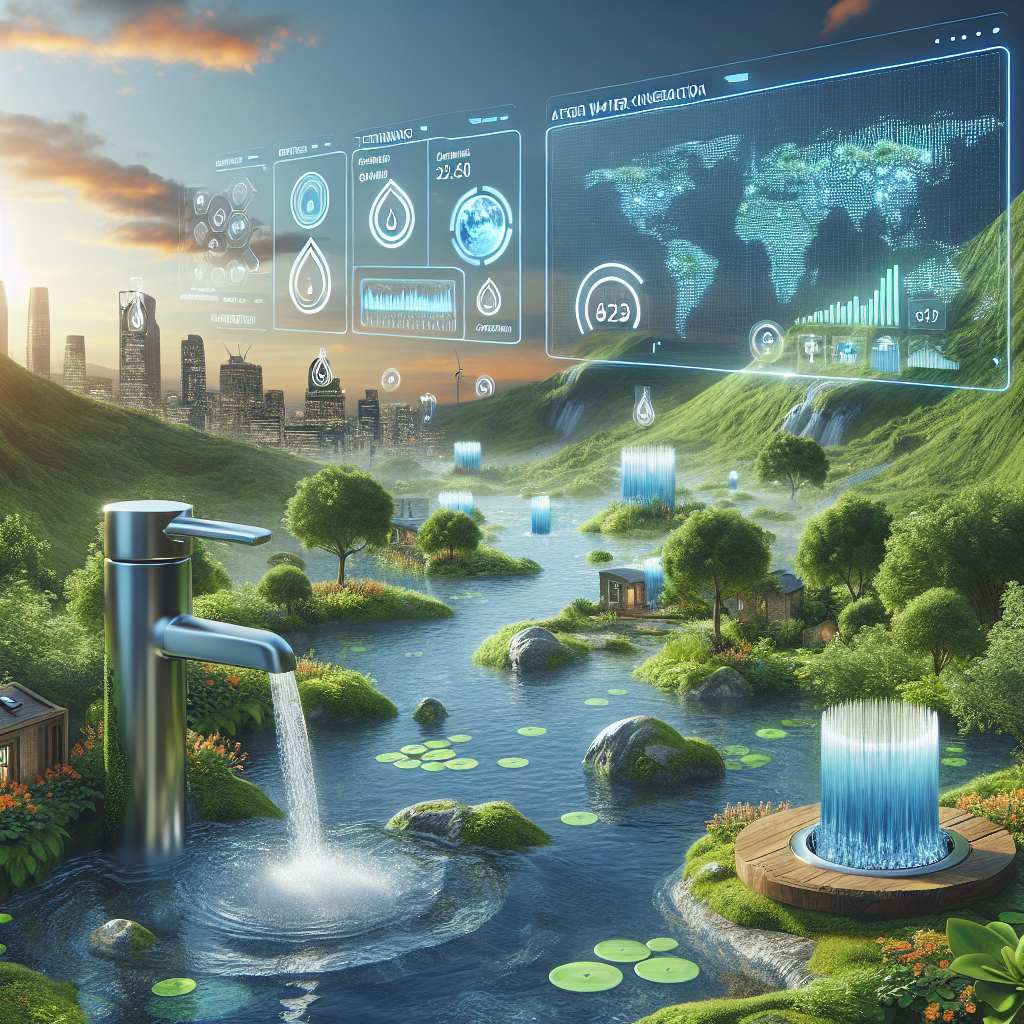The Role of Technology in Water Conservation
Water is the elixir of life. This fundamental truth is universally acknowledged yet often taken for granted, especially in regions where water seems abundant and easily accessible. However, with the growing global population, urbanization, and the impacts of climate change, water scarcity has become a pressing issue faced by many regions around the world. It’s estimated that by 2025, two-thirds of the world’s population may face water shortages. This stark reality underscores the importance of water conservation and the need for innovative solutions to ensure sustainable water management. Technology plays a pivotal role in this endeavor, offering tools and methods to conserve, monitor, and efficiently use water resources.
Advanced Irrigation Systems
Agriculture consumes approximately 70% of the world’s freshwater, but a significant portion of this water is wasted due to inefficient irrigation methods. Technological advancements in irrigation systems, such as drip irrigation and sprinkler systems, have significantly increased water efficiency in agriculture. Drip irrigation delivers water directly to the plant’s roots, minimizing evaporation and runoff, while automated sprinkler systems can adjust watering schedules based on weather conditions, reducing water waste. These smart irrigation systems not only conserve water but also improve crop yield and quality.
Water Recycling and Reuse Technologies
Water recycling and reuse technologies have become crucial in water conservation efforts, especially in arid regions and cities facing water scarcity. These technologies treat wastewater to a safe level so it can be reused for various purposes, including irrigation, industrial processes, and replenishing aquifers. Techniques such as membrane filtration, ultraviolet disinfection, and advanced oxidation processes ensure that recycled water meets health and safety standards. By treating and reusing wastewater, we significantly reduce the demand for freshwater and protect natural water bodies from pollution.
Leak Detection Systems
Leaks in water distribution systems can lead to substantial water loss. Modern leak detection technology, including acoustic sensors and satellite imagery, helps in identifying leaks, even in large-scale water distribution networks. These technologies not only help in conserving water but also in reducing the costs associated with water loss and infrastructure damage.
Smart Water Meters
Smart water meters are another technological innovation aiding in water conservation. These devices provide real-time data on water use, allowing consumers and utilities to monitor and manage water consumption more effectively. By identifying unusual spikes in water use, smart meters can help in detecting leaks within properties. They also empower consumers to understand their water usage patterns and make informed decisions to conserve water.
Artificial Intelligence and Machine Learning
Artificial intelligence (AI) and machine learning (ML) are at the forefront of transforming water conservation strategies. AI and ML algorithms can predict water demand, optimize water distribution, and enhance water treatment processes. These technologies can analyze vast amounts of data from various sources, including weather patterns, consumption trends, and satellite images, to forecast water availability and demand. This predictive capability is vital for effective water management and conservation planning.
Cloud Computing and IoT
The integration of cloud computing and the Internet of Things (IoT) in water management systems has led to the development of interconnected water networks. These networks collect and analyze data from various sources, such as sensors and meters, providing valuable insights into water use, availability, and quality. This real-time data is crucial for making informed decisions on water allocation, conservation measures, and emergency response.
FAQs on Technology and Water Conservation
Q: How do smart irrigation systems conserve water?
A: Smart irrigation systems use sensors and weather data to optimize watering schedules and amounts, reducing water waste while ensuring plants receive the necessary moisture.
Q: Can recycled water be safe for drinking?
A: Yes, with advanced treatment processes, recycled water can be purified to meet drinking water standards. However, it’s more commonly used for non-potable purposes.
Q: Are leak detection systems expensive?
A: The initial cost of installing leak detection systems can be significant, but they can save money in the long run by preventing water loss and infrastructure damage.
Q: How do smart water meters help in water conservation?
A: Smart water meters provide real-time data on water consumption, helping consumers and utilities to monitor and manage water use more effectively, leading to significant water savings.
Q: What role does AI play in water conservation?
A: AI helps in predicting water demand, optimizing distribution, and enhancing treatment processes by analyzing large datasets, improving efficiency, and aiding in conservation efforts.
In conclusion, the role of technology in water conservation is multifaceted and increasingly critical in the face of global water scarcity challenges. Through innovations in irrigation, water recycling, leak detection, smart metering, artificial intelligence, and more, technology offers promising solutions for sustainable water management. As these technologies continue to evolve and become more accessible, their integration into water conservation strategies will be pivotal in securing a water-efficient future for the planet.

